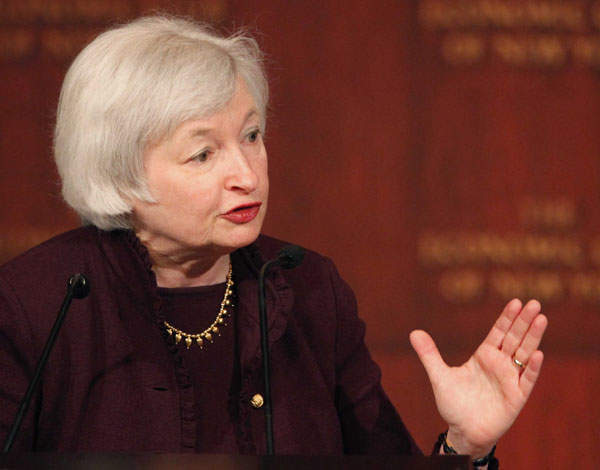

As the global recovery broadens, will 2014 herald the retreat of the unorthodox and omnipresent central banker, and the beginning of the Great Unwind in the developed world? I do not expect so.
While deleveraging has progressed far in some parts of the world, I expect that high levels of public (and, in many cases, private) indebtedness will continue to force a disproportionate response from monetary policy.
Loose liquidity conditions — even as the pace of quantitative easing slows in the US — will therefore remain in place in 2014, albeit with greater regional disparity driving increasingly divergent market trends.
Read more on the global economy from Spear’s
Last summer, when the US Federal Reserve merely hinted at QE tapering, equity markets and emerging market (EM) currencies tumbled, while bond yields and mortgage rates soared. However, this time round the Fed managed to actually announce the beginning of tapering without much — if any — damage.
With a recovery in consumption and housing, less austerity drag and potentially an investment rebound, all the ingredients are in place for the US economy to reach above-trend growth in 2014. So, while last summer QE tapering seemed premature, it is now widely seen as warranted by the US economic fundamentals.
The broader impact of tapering supports this. Not only has weakness in EM currencies been more selective this time around, but equities have also welcomed the taper. More interestingly, the two-year bond yields have not reached the 2013 ‘highs’ seen last September as the Fed has managed to contain interest rate hike expectations.
Fed chairman Janet Yellen (pictured above) has been explicit about the need to reduce unemployment, and under her leadership I expect the Fed to remain proactive, for example by lowering its unemployment threshold (ie the level which could trigger Fed action) from 6.5 per cent to 6 per cent. This would demonstrate heightened commitment to supporting the cyclical recovery and cyclical employment.
The draghi factor
Europe, by contrast, will continue to experience a sluggish, sub-par recovery as 2014 continues. While Mario Draghi’s ‘whatever it takes’ stance has restored market confidence and helped end six quarters of negative growth, the forces of deleveraging are still strong.
Corporate lending rates remain substantially higher in the periphery than in the core. I expect the European Central Bank to ease policy further in order to counter a broken monetary transmission mechanism that risks deflation.
Meanwhile, after several aborted recoveries in the UK, low interest rates, better global growth and an easing of fiscal austerity have finally jump-started growth. I expect the economy’s momentum to be sustained this year as the coalition’s unashamedly pro-growth measures (such as Help to Buy and Funding for Lending) drive residential property and business investment higher.
Like the US, I expect the Bank of England to stick to its ‘evolving’ forward guidance, keeping rates low as long as unemployment remains above 7 per cent, and even beyond.
Elsewhere in the developed world, thanks to aggressive monetary policy, an induced weaker yen and a loose fiscal stance, Japan enjoyed a strong rebound in economic growth, inflation and inflation expectations in 2013.
This year, however, will prove more complicated. The recently announced fiscal stimulus, a supplementary budget deal and a potential top-up in the Bank of Japan’s asset purchase programme will only partially offset the consumption tax hike due in April.
Careful steps
So what can we expect next? In the UK and eurozone, tapering should actually alleviate pressure on sterling and the euro, as less Fed liquidity leads to a stronger US dollar. The year could also bring yet lower interest rates from the ECB (although mostly for domestic reasons). In short, despite a reduction in liquidity from the US, continued thoughtful support from the developed world’s central banks is likely.
An accelerating global recovery alongside (still) chastened central bankers remains a good combination for financial markets. The bulk of equity returns generated in the global rally of the past eighteen months have still come from an expansion of valuations rather than a consistent, market-wide increase in corporate earnings.
This year could see this relationship change. US margins may be at or close to historic peaks, but those in Europe remain at cyclical lows, while the profile of Japanese profitability, in the face of a weaker yen and the promise of domestic deregulation, could still be transformational.








